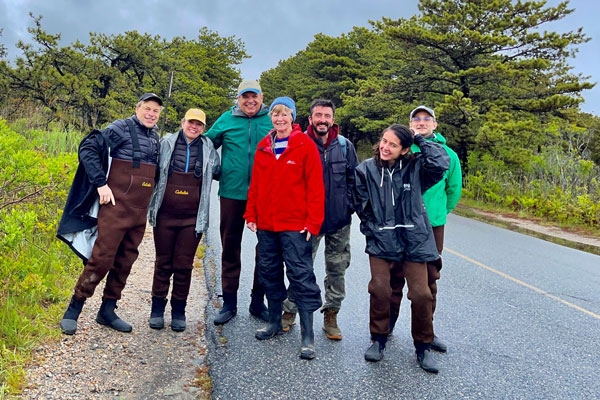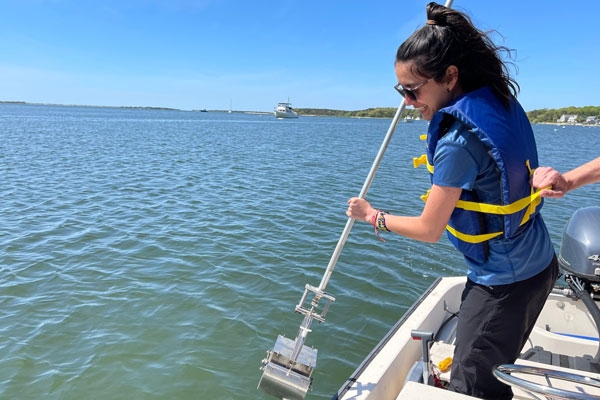Environmental Hands-On Research Course

This intensive course introduces fellows to the experiments that scientists conduct, and the measurements they make, to discover the complex ways that added nitrogen alters coastal ecosystems, such as their capacity to keep up with sea level rise and impacts on marine organisms and coastal food webs.
Due to increased suburban and urban development, increased inorganic fertilizer production, and fossil fuel burning, human beings have altered the earth’s nitrogen cycle to a greater extent and more quickly than their alteration of the earth’s carbon cycle. On the Massachusetts coast, declines in water quality and oxygen, and loss of eelgrass, shellfish, and fish are local manifestations of this global nitrogen problem.
The fellows will make field and laboratory measurements that address questions about how added nitrogen affects estuaries and marsh and eelgrass habitats. They will work in a ecosystem-scale “space-for-time” experiment in Waquoit Bay on Cape Cod, where watershed development has added nitrogen and caused eutrophication.
Fellows will take measurements to estimate the nitrogen loading to a local estuary. They will also take samples to determine if eutrophication increases or decreases the capacity of salt marshes to keep up with sea level rise, and consider how it alters the plants and animals in food webs. They will work with scientists at the Marine Biological Laboratory to analyze their samples, interpret their data, and present it to their colleagues at a mini-symposium.

